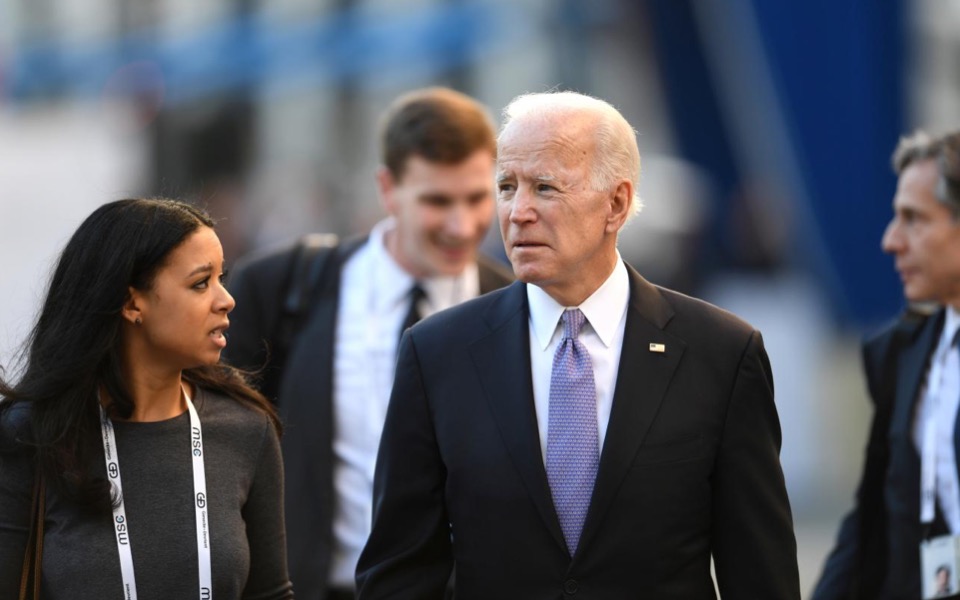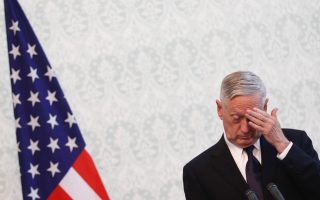Is America’s turn left a turn inward?

In his landmark Foreign Affairs article “The Sources of Soviet Conduct” at the beginning of the Cold War, George Kennan laid out the strategy of containment. He noted how important the example America set domestically – economically, in coping successfully with its internal problems – was to the looming geopolitical competition with the Soviet Union. Yet Kennan did not take the emergence of an America that was a good example for granted. He also noted that, “by the same token, exhibitions of indecision, disunity and internal disintegration within this country have an exhilarating effect on the whole Communist movement.”
Thus, one of US foreign policy’s great strategic minds made it clear that he believed American domestic politics would have a decisive effect on global politics. Kennan’s exhortation for America to set a good example should especially be on our minds today, as constant US exhibitions of indecision, disunity and internal disintegration are undermining the country’s status as a global leader.
Last week at the Munich Security Conference, former vice president and potential 2020 presidential candidate Joe Biden was sharply critical of the Trump administration’s foreign policy. He tried to reassure his European audience with these words: “This too shall pass. We will be back. We will be back. Don’t have any doubt about that.”
Biden may not be in any position to make such a guarantee. His use of “we” assumes that America will once again be led by those who are committed to the post-WWII liberal world order that it helped build. That assumption, however, might be as unwarranted in the 2020 Democratic primary as it was in the 2016 Republican primary.
Edward Luce, the Washington columnist for The Financial Times, argues that “the effect of Donald Trump on American politics has been to radicalize the left.” Democrats and young Americans have adopted a more positive view of socialism vis-a-vis capitalism in recent years. In 1988, Michael Dukakis was put on the back foot by George H.W. Bush attaching “the L word” to him. Thirty years later, proving one’s liberal/progressive bona fides is a minimum requirement in the Democratic primary, which now features a declared democratic socialist.
Radical policy ideas are becoming part of the mainstream debate because of this radicalized left. Seventy percent taxes on the rich; Medicare for all; free college; federal job guarantees; the Green New Deal. Luce calls this agenda “America’s unexpected socialist dawn,” one that is sparking a genuine ideological debate in American politics.
Despite the ideological differences between America’s left and right, it is the similarities that should cause distress. According to Luce, up through the Obama administration, US politics was marked by “asymmetric polarization, whereby one party has gone way more extreme than the other.” But now, Luce sees a “dangerous” result from two years of Trump and the left’s reaction to him: Asymmetric polarization has turned into symmetric polarization. Luce notes that both sides are appealing to an increasingly “exhausted majority,” one that has been alienated by politics and is disengaged, so it is “particularly vulnerable to much more cartoonish and ideological appeals.”
Another similarity between America’s left and right should concern the world: a broad assault on globalization without a clear vision of what type of order comes in its place. Across the American political spectrum, there is a fairly strong reaction against wars of choice and trade. The majority of Americans feel neither safer nor more prosperous given the failed “forever wars” of the last two decades and US trade policy. The most common reaction has been to make globalization an all-too-convenient scapegoat for what ails America.
In what has become a checklist item for presidential candidates, Senator Elizabeth Warren laid out her foreign policy vision via a Foreign Affairs essay. In “A Foreign Policy for All,” Warren asserts that “the United States can no longer maintain the comfortable assumption that its domestic and foreign policies are separate.” This echoes the essence not only of Kennan but several of his successors as director of policy planning at the State Department. One of them, Richard Haass, even wrote a book titled “Foreign Policy Begins at Home.”
But Warren adds a twist that goes beyond setting a good example or of being able to afford our military and diplomatic initiatives abroad: “Every decision the government makes should be grounded in the recognition that actions that undermine working families in this country ultimately erode American strength in the world. In other words, we need a foreign policy that works for all Americans.” This comes across as a tamer version of “America First” and Tufts’ Dan Drezner critiqued this vision as “Trumpism with a human face.”
Neither Trump, nor Warren nor Alexandria Ocasio-Cortez has laid out in detail how reversing globalization will restore the middle class, but we are painfully witnessing the specific consequences of America’s retreat from global leadership. As Greece doubles down on its own commitment to globalization – avoiding Grexit, supporting NATO, coming to a settlement with North Macedonia, being part of the genesis of a new international institution (the Eastern Mediterranean Natural Gas Forum) – can it count on Washington providing political cover, security assistance and economic support?
Luce worries that September 11 and the 2008 financial crisis “broke America’s spirit of global leadership.” Europeans may want to believe Biden’s guarantee that America “will be back,” but can he even deliver his own party?
Endy Zemenides is executive director of the Hellenic American Leadership Council.





